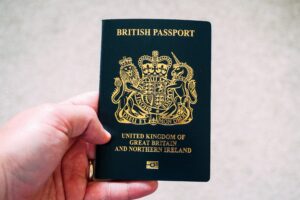
In 1952, around the time of the last coronation, a Conservative government scrapped the nation’s ID card claiming it was too prone to abuse by a heavy-handed police force and would cause the public to mistrust it. Fast forward 50 years, and the New Labour government pushes through a bill to bring back National Identity Cards. In a matter of months after the initial launch, the Cameron-Clegg Coalition decided to abandon the scheme.
A decade later, and it would seem the public’s mistrust of the police is now accepted and, by many, a justified fact. Yet the UK still does not have an ID card. This means that people in the UK still suffer the consequences of having to rely on secondary forms of identification, like travel documents or permits to drive a vehicle, or perhaps a proof of abode.
Of course, the chances are that if you are reading this, none of this will matter to you. You probably have a passport, a driving licence, a bank account and multiple proofs of address. Indeed, if you check the data, several, not so startling facts pop up, foremost being that the more types of secondary forms of ID you possess the more certain it is that you are white, male, old and affluent.
There’s also a good chance you are opposed to a national ID card.
One way to ensure that a democratically elected government never introduces an ID card is to discourage people who are NOT white, male, old and wealthy from voting for one. For example, you could insist that only people with an international travel document costing a week’s grocery bill can vote. Or how about only letting someone vote if they have a valid drivers’ licence showing their current address, despite the evidence that only 53% of black adults have a licence compared to 76% of white people and the fact that, over a ten-year period, 14% of adults do not have a fixed address.
It should not be a surprise that 1.3 million adults do not have a bank account: it is very hard to get one if you have no address and no other secondary form of ID. The list of unequal access to verification of identity is long, obvious and sad. It affects the least wealthy, the homeless and non- white people. The same people who find it harder to access health, finance, employment, education and justice.
History is repeating itself because Government has opted to tackle a genuine problem by contriving a bogus solution that not only fails to address the actual issue but one which could create a bigger problem. The misguided introduction of the Community Charge in 1990 caused untold harm, not least by disenfranchising certain sections of society. It both led to widespread civil unrest and failed to address the funding crisis facing local services it was ‘intended’ to fix.
Likewise, Voter ID seems a reckless experiment with no discernible purpose and a justification that is widely acknowledged as weak, not least by the Electoral Commission itself.
Voter ID risks disenfranchising the very people who would benefit most from a vibrant, liberal democracy: the people with the least disposable income such as the young, who are less likely to have any of the acceptable forms of secondary ID, especially the range of senior travel cards that will be accepted.
A House of Lords amendment to widen the number of ID options was largely ignored. Instead, people have been given a deadline to apply for a free ‘Voter Authority Certificate’, creating yet another mixed message.
As only 1% of people requiring ID have so far signed up for a voting certificate, it’s clear that this confused policy will achieve the pretty much the same result as the poll tax achieved in 1992.
What too many politicians, commentators and grandees fail to accept is that we all have an identity, and a just society should seek to provide a common, easy way for us to verify it. Even if we are not male, white, old and rich.


